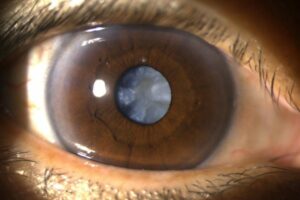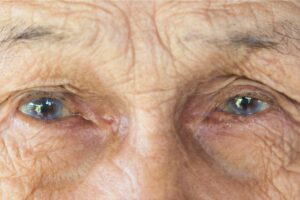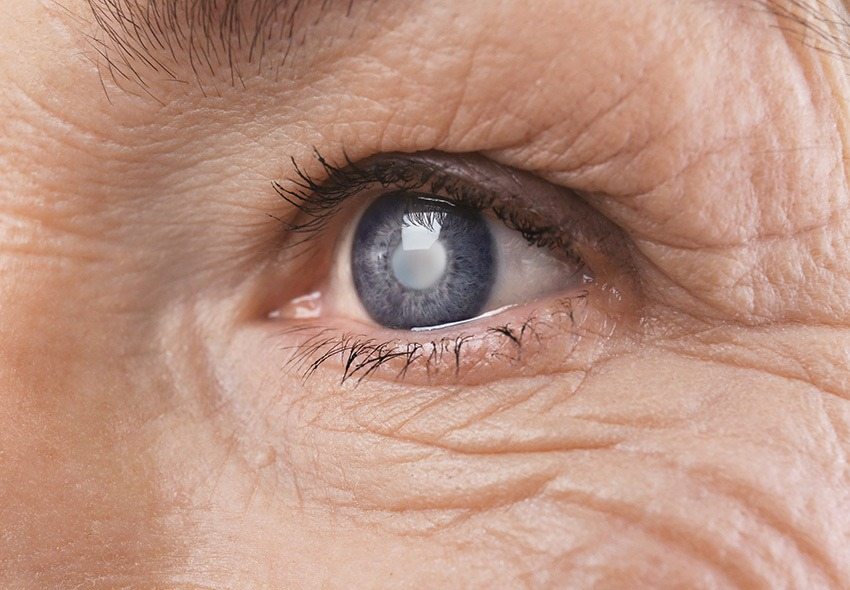If you have been diagnosed with dense cataracts, you may be feeling scared and confused. What is this condition, and what can be done about it? In this blog post, we will discuss everything you need to know about dense cataracts. We will explain what it is, how it is treated, and what the possible outcomes are. We hope that by reading this post, you will feel more informed and prepared to deal with dense cataracts.
Contents
What Is a Dense Cataract?
 Dense cataracts are a type of eye disorder that forms when the lens of the eye becomes cloudy due to age-related changes or other factors. This clouding of the lens can cause blurry vision, difficulty seeing in low light, and double vision. It is a type of cataract that is more difficult to treat than a less dense cataract.
Dense cataracts are a type of eye disorder that forms when the lens of the eye becomes cloudy due to age-related changes or other factors. This clouding of the lens can cause blurry vision, difficulty seeing in low light, and double vision. It is a type of cataract that is more difficult to treat than a less dense cataract.
It is estimated that more than half of adults over the age of 65 have some degree of cataract. And that this number increases to 70 percent among people over 75. Dense cataracts are especially common in those who are older, as well as those with diabetes, a family history of cataracts, or certain medications.
If you are having any of these symptoms, it is important to contact an eye care specialist as soon as possible.
How Can You Identify It?
It is not always easy to identify a dense cataract. However, there are certain signs that can help in diagnosis. These include:
- Blurred vision: This is the most common symptom associated with a dense cataract. It may be difficult to focus and make out details when looking at objects, particularly in low-light conditions.
- Cloudy vision: When looking through the affected eye, it may appear as though there is a veil or film present over the pupil.
- Halos around lights: If you look at a lightbulb or other bright object, you may notice halos or rings of color around it.
- Increased sensitivity to light: Noticing that your eyes are suddenly more sensitive than usual could indicate the presence of a dense cataract.
- Double vision: If a dense cataract is present in both eyes, double vision can occur.
If you are experiencing any of these symptoms, it is important that you consult your doctor or eye specialist immediately. Sometimes, signs and symptoms of a dense cataract may develop gradually over time. So it is important to keep watch for any changes in vision.
With the right time and care, most cases of dense cataracts can be successfully treated. So, you should not feel discouraged if you are diagnosed with this condition.
What Causes Dense Cataracts?
There are always many factors involved in the development of a dense cataract, but some of the most common include:
- Advancing age: It is one of the foremost risk factors for cataracts, as age-related changes to the eye can cause proteins in the lens of your eye to clump together, leading to a cloudy or opaque appearance.
- Excessive exposure to ultraviolet (UV) light: Too much exposure to UV rays from the sun or other sources can damage the proteins in your eyes and increase your risk of developing cataracts.
- Smoking: Cigarette smoke contains toxins and chemicals that can damage the proteins in your eyes, leading to an increased risk for cataracts.
- Diabetes: Diabetes can cause fluctuations in blood sugar levels which can lead to changes in the proteins of the eye lens and increase cataract risk.
These causes might seem daunting, but there are plenty of ways to reduce your risk and slow the progression of a dense cataract. However, you should always consult with your doctor to help determine the best course of action for you.
How Are Dense Cataracts Diagnosed?
If you experience vision problems that can’t be corrected with glasses or contact lenses, your eye doctor may suspect a cataract and will perform a thorough eye exam to make the diagnosis.
In addition to a visual acuity test, your eye doctor may use several different imaging techniques to evaluate the condition of your eyes. These tests may include:
- Ultra-widefield imaging, which shows the entire retina.
- Ocular coherence tomography (OCT) measures the thickness of different layers in the back of the eye.
- Optical coherence tomography angiography (OCTA) reveals the condition and health of blood vessels in the back of the eye.
- A slit-lamp examination uses a microscope to examine the structures inside the eye.
If any of these tests reveal that you have a dense cataract, your doctor will discuss the best treatment options for you. With an accurate diagnosis and appropriate treatment, your vision can be restored.
How Are Dense Cataracts Treated?
 There are different types of treatment options for dense cataracts, depending on the severity of the condition. Generally, surgery is recommended as the best course of action. But you should understand that in the surgery itself, there are various ways to treat dense cataracts.
There are different types of treatment options for dense cataracts, depending on the severity of the condition. Generally, surgery is recommended as the best course of action. But you should understand that in the surgery itself, there are various ways to treat dense cataracts.
The most common way to treat a dense cataract is through phacoemulsification, also known as small-incision surgery. This procedure involves making a tiny incision in the eye and using ultrasound technology to break up the hardened lens material so that it can be removed easily. The doctor will then replace the lens with an intraocular lens (IOL). The IOL can be customized depending on your visual needs.
Another option for treating dense cataracts is laser-assisted cataract surgery. In this procedure, a computer-controlled laser device is used to break up the hard lens material and to make precise incisions in the eye. This allows for the precise removal of the cataract. And it is usually done at the same time as intraocular lens implantation.
A less common treatment option for dense cataracts is called manual small-incision cataract surgery (MSICS). In this procedure, a surgeon uses a microsurgical blade or an ultrasonic device to break up the cataract and remove it. It is generally used when a patient’s cataracts are too dense for phacoemulsification or laser-assisted surgery.
Regardless of which procedure your eye doctor recommends, you should discuss any questions or concerns you have with them before making a decision. It is important to understand the risks and benefits of each treatment option. So you can make an informed decision.
How Can You Take Care Of Your Eyes With Cataracts?
If you choose surgery to go with, there are still things you can do to help take care of your eyes with cataracts. It is important to keep up an eye health routine even after surgery. Especially if you have been diagnosed with a dense cataract. Here are some suggestions for good eye health:
- Wear sunglasses when outside, as the UV rays from the sun can worsen or even cause cataracts
- Have regular checkups with your ophthalmologist to catch any changes in your vision and be sure all is going well
- Take vitamins, especially those that contain antioxidants, which can help slow down the progression of cataracts
- Quit smoking or avoid secondhand smoke if possible, as this is a serious risk factor for developing cataracts
- Eat a healthy diet full of fruits and vegetables, as these are high in antioxidants
- Avoid or minimize your exposure to blue light from screens, such as computers, phones, and tablets.
These tips can help ensure you keep good eye health even with dense cataracts. Your ophthalmologist can recommend further steps you should take to care for your eyes.
While surgery is the most effective way to treat cataracts, there are other treatments as well. These include lens implants and intraocular lenses that help replace the cloudy lens with one that is clearer and more transparent. Your ophthalmologist will discuss these options with you to determine which is best for your unique situation.
Conclusion
In conclusion, dense cataracts are a serious issue and require urgent treatment. Early detection is key as the condition can quickly worsen if left untreated, leading to vision loss. This condition is often managed with surgery, although there are also conservative treatments available. It is important to speak with your doctor about the best course of treatment for you and weigh up the risks and benefits associated with each option.
Taking steps to protect your eyesight can help reduce your risk of developing dense cataracts in the future. So, begin your journey to recovery today!
For more information and guidance, please get in touch with Mantra Care right away. At MantraCare we have a team of experienced eye surgeons, who will be happy to answer any questions on cataract surgery. Call us at +91-9711116605 for any inquiries.
